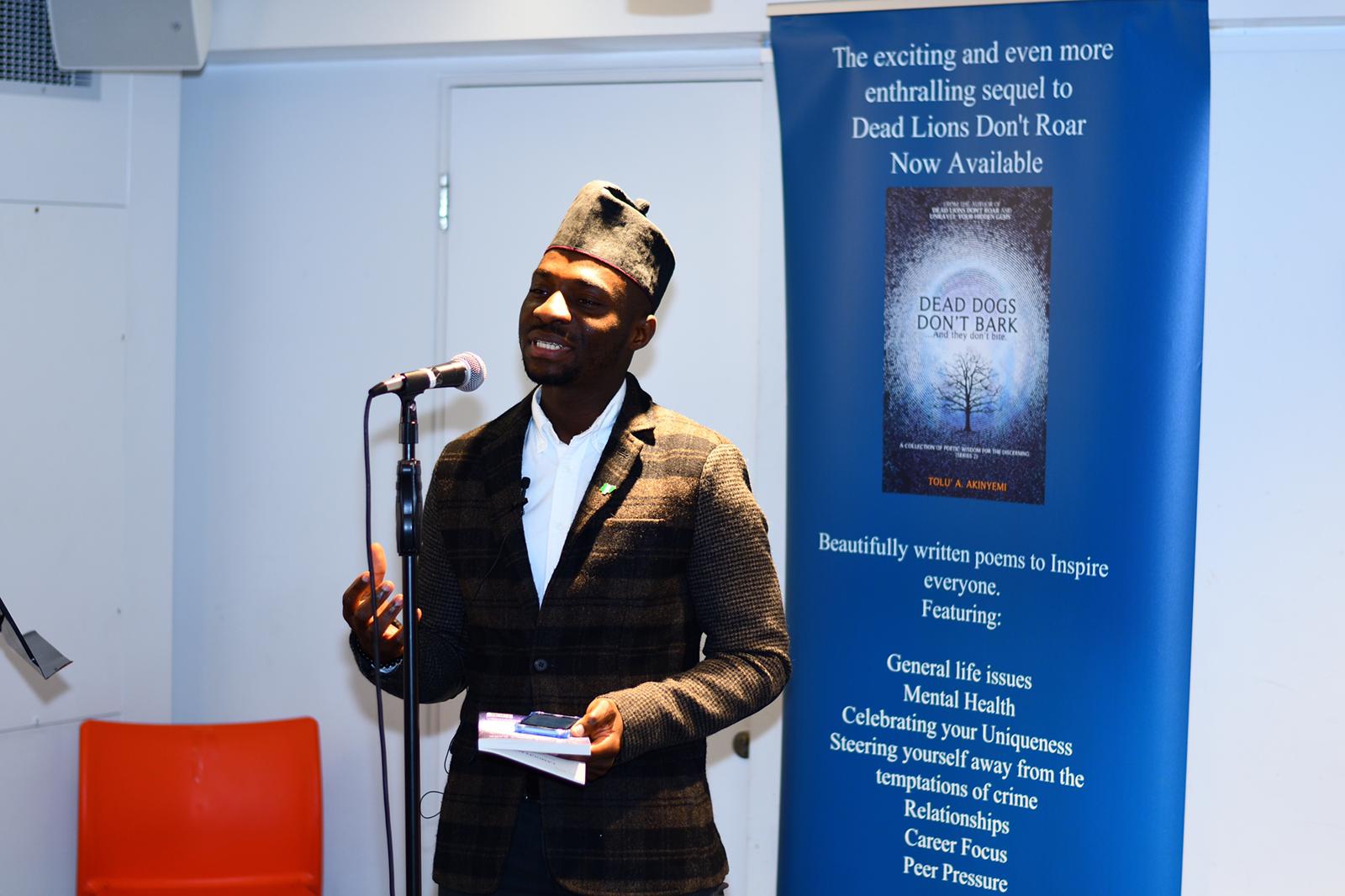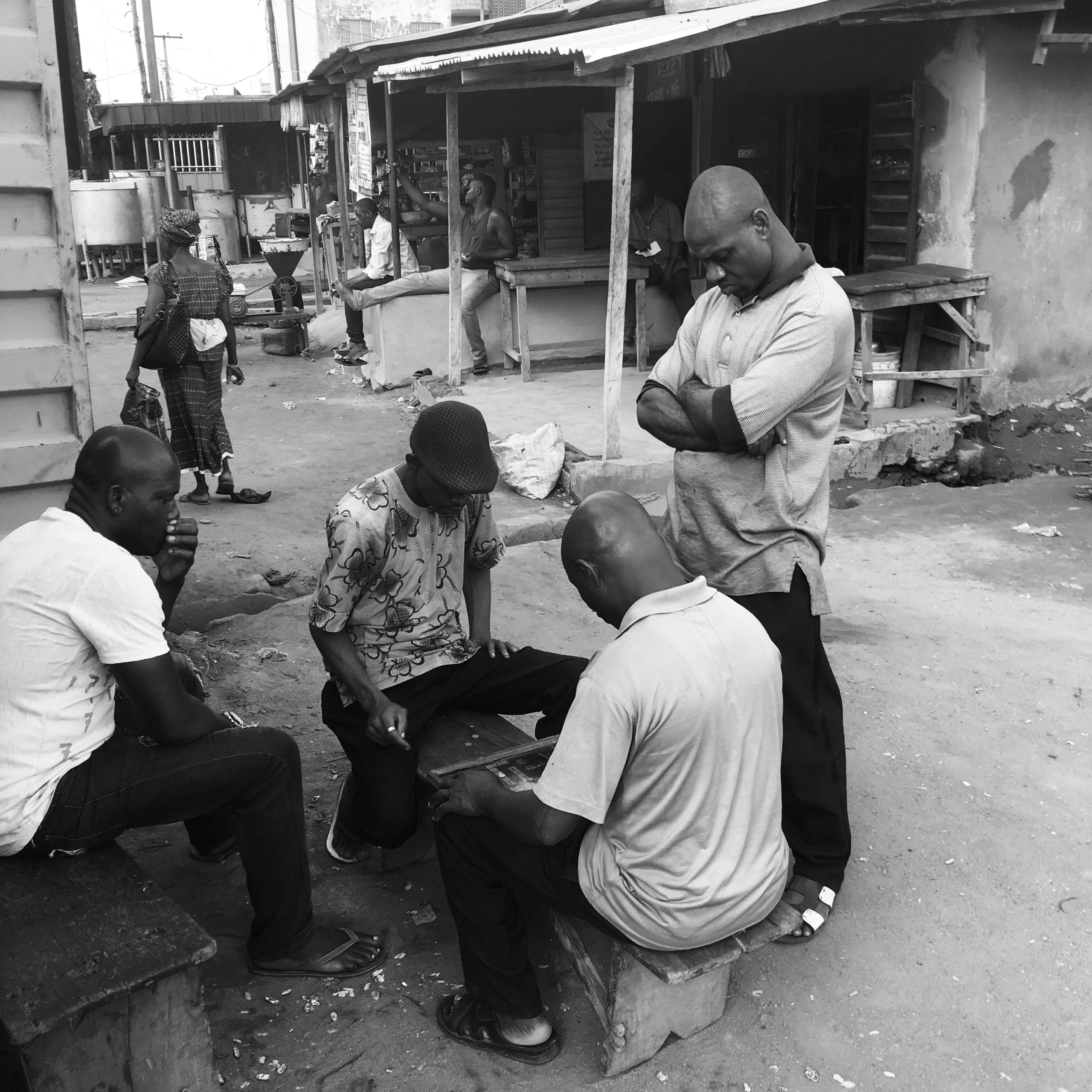Bio: Abimbola Alaba is a clinical pharmacist and writer of poetry, essays, short stories, and historical fiction. His poems ‘Belonging’ and ‘The Fish my Father Caught’ have been published. He performs poetry to spoken word audiences and lives in Kent, on a bed covered in research notes. He is currently working on his debut novel.
RLN: Who were your early influences on your writing journey?
AA: Camara Laye’s The African Child was my earliest experience of compelling literature. I read it when I was 7 or 8 in Lagos and the story has stayed with me since. Most of the short stories I wrote in those days were inspired by Enid Blyton whose books I adored. I’d also mention Chinua Achebe and oddly, James Hadley Chase as early inspiration. In Things Fall Apart for instance, there was a scene in which Okonkwo’s son Nwoye refused to show any strain in the presence of his mother despite the heavy load he carried on his head as this would have been considered a sign of weakness. I carried that notion with me for a long time and would recoil at the thought of revealing any inadequacy when in the company of the fairer sex!
RLN: Has your career as a pharmacist influenced your storytelling abilities and what is the correlation between dispensing words and medications?
AA: I think the only real cross over I can think of is that pharmacy and writing share the common idea of making sure there is coherence before output. As a clinical pharmacist, I must consult colleagues, medical texts, examine combinations of medicines carefully and check every detail before dispensing or administering any drugs to my patients. I try to take the same degree of attention into my writing, ensuring facts are verified and that, as much as possible if I’m addressing historical events, or making sure my choice of words or punctuation is appropriately nuanced to the context in which they are being used. I always feel a reader can only derive any satisfaction from my writing if it is something that affects me personally. For this reason, several drafts end up in the recycle bin! That is my barometer – if I don’t think what I have written charges my spirit I don’t feel it is worth dispensing to others, just like I do not dispense medicines for medicines’ sake.

RLN: Which would you say is your favorite genre and why that choice?
AA: A tough one to answer: I enjoy fantasy and historical fiction almost as much as autobiographies and history books. If I had a gun to my head, I’d plump for historical fiction. I love the way the truth is woven into imagination; the way it allows history to be retold or rekindled, wrapped around a story that is fictional. There is a dose of realism I find in these kinds of books that draw me into them further than into, say, a crime thriller (which I also enjoy).
RLN: How have your many travels influenced your writing and opened you up to new ways of thinking?
AA: Significantly. A lot of ideas have come from my travels. And by travel, I include a 5 mile drive to the supermarket. There is something about motion that stimulates my senses, and I’ve often had to pull up on many roadsides to type a few ideas that spring up in my head.
RLN: You seemed to have a deep love for photography, what inspired this and how does your love for photography influence your writing?
AA: My writing would suffer without photography. I draw a lot of inspiration and ideas from the obscurity of images, the silent stories they seem to tell. It’s almost a cheat code: the picture is saying “look there’s a compelling story here. You only need to find the words hidden in the open.” One of my writing prompts is to flick through old photographs of my childhood. It is amazing how much of writing, especially the first forays into the art is autobiographical. Somewhere, somehow, you are writing about yourself. The fear is that I have lived little of an eventful life and will run out of photographs and therefore, stories!

RLN: Which three books (Top of your list) have you read this year that you would definitely want to read again?
AA: Everything by Khaled Hosseini—The Kite Runner, A Thousand Splendid Suns, And The Mountains Echoed. They are heart shredding books that somehow left me smiling.
RLN: What has been the highlight of your writing career till date?
AA: I have had some of my poems published, only because someone read one of them and thought they were good! But the feedback I receive from some readers online is possibly my main highlight, and I don’t take it for granted. I am at the very beginning of my journey.
RLN: Your brother Toro is also a writer; Would it be right to say you’re a family of creatives and how did this come to be?
AA: I am rather proud of Toro’s creativity which extends far beyond mine—into fine art and music. His body of work is already compelling. I think we like stories as a family. It was in the air we inhaled as children. We had uncles and aunts who would tell us old folklores whenever they stayed over at our house, usually on the balcony, as we all sat or lay on mats under the glow of moonlight. There was an enchantment to those moments and I think it just remained with us.

RLN: When should we be expecting your first book and in what genre?
AA: I hope 2020 will be a year of first drafts and completion. It is a work of historical fiction that crosses timelines where the lives and journeys of a young man in 90s Lagos and a slave in North Carolina in the 15th century are woven together.
RLN: If you were to advise a newbie writer on how to write a compelling story, what would you be telling them?
AA: I wouldn’t pretend to be an oracle on writing, but all I can advise is that to write anything well, I have to write it as if I was there when it happened, as if it happened to me. I find the mundane to be significant. From where did the wind blow? How heavy were the rings the lady wore? She was angry—but how angry? I feel this gives the character some heart and allows the reader to become emotionally invested in their lives. Also, every writer must read voraciously.
